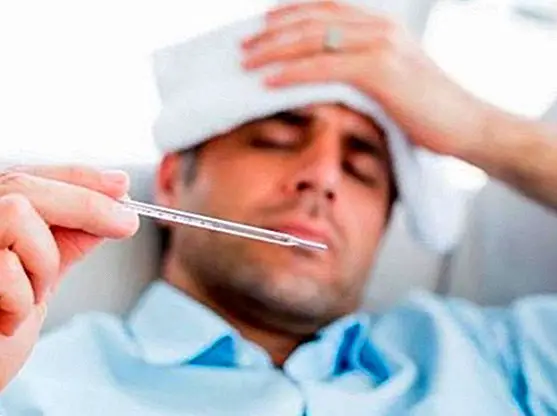High creatinine: how to lower elevated creatinine levels

The creatinine It is a basic parameter that is usually studied in the routine blood test, and serves to know the proper functioning of the kidneys, the main purification organs of our body.
When a diagnosis is high blood creatinine It means that, with a more or less greater probability, our kidneys do not work correctly, precisely because they do not clean it correctly, causing high levels of creatinine in our blood.
In previous occasions we have explained to you, from a series of basic tips and tricks, not only how to lower high triglycerides, if not how to lower high sugar.
Since then, we have received some comments from many of our readers who ask us about healthy advice to take into account to know how to lower creatinine (in this sense, serum creatinine).
How to lower elevated creatinine?
While it is true that creatinine is the final product of metabolism, there are some basic recommendations that allow us to take care of ourselves, and therefore lower high creatinine in the blood.
It is useful to follow the following basic health tips:
- Drink every day between 1.5 to 2 liters of water per day (about 8 glasses of water). You can combine with infusions and herbal teas such as those indicated below.
- If you have high blood pressure you should control your hypertension, as it is one of the biggest enemies.
- Eliminate food with acid waste: lentils, nuts, coffee, alcohol, plums and blueberries.
- Eliminates foods rich in purines: sausages, legumes, viscera, sardines, herring, scallops and anchovies.
- Eliminates foods high in potassium: celery, spinach, chicory, cabbage, potato, orange and sweet potato.
- Choose to consume fruits, vegetables and fresh vegetables.
- Eat healthy foods, such as white meats (chicken, turkey and rabbit), and white fish.
- Opt for diuretic foods: asparagus, pineapple, artichokes, watercress, broccoli or onion.
- Practice regular physical exercise but do not over-exert yourself. Did you know that too much physical effort can raise blood creatinine?

In addition, there are also other natural tips and various remedies that can be of great help when it comes to caring for the kidneys and decreasing the high values of creatinine in blood and urine. They are the following.
Plants and herbs useful in case of having high creatinine
There are certain plants and herbs with medicinal benefits that help improve the proper functioning of these organs, which contributes to lowering the blood creatinine values progressively.
- Agrimony: it is a useful plant in case of stones, kidney colic (nephritic colic) and other renal affections. To prepare the infusion, you should boil the equivalent of one cup of water in a saucepan, and when it boils add the dry agrimony. Leave boiling 3 minutes, after this time turn off the heat, cover and let rest 2 minutes. Finally sneak and drink. You can drink three cups of agrimony infusion per day.
- Horse tail: is a plant known for its diuretic and depurative qualities, useful for eliminating toxic waste. To prepare the infusion you must boil a cup of water in a saucepan; when it enters boiling add a teaspoon of horsetail and leave boiling 3 minutes. After this time turn off the heat, cover and let rest 2 minutes. You can drink one to two cups of this infusion a day.
- Grama: it is a plant that helps to reduce inflammation of the kidneys. Since its roots are used, to take advantage of its qualities we must elaborate a decoction. To do this, boil the equivalent of a cup of water in a saucepan and let it simmer for 10 minutes. Finally sneak and drink. You can take three cups a day of decoction of agrimony.
To take care of them it is important to drink water and control blood pressure. It can also be useful to know how purify the kidneys, being ideal to purify them at least once a year.
Tisanes and depurative infusions against high creatinine
- Infusion of dandelion: boil the equivalent of a cup of water in a saucepan. When it boils add a teaspoon of dried dandelion, boiling for 3 minutes. After this time turn off the heat, cover and let rest 2 minutes. Finally sneak and drink. You can take 2 infusions a day, before meals.
- Infusion of artichoke: boil the equivalent of a cup of water in a saucepan. When boiling add a teaspoon of dried artichoke, boiling 3 minutes. After this time turn off the heat, cover and let rest 2 minutes. Finally sneak and drink. You can take 2 to 3 infusions a day, before meals.
- Tisane of parsley: Boil the equivalent of a cup of water in a saucepan.When boiling add a teaspoon of fresh parsley, boiling for 3 minutes. After this time turn off the heat, cover and let stand 3 minutes. Finally sneak and drink. You can take 2 to 3 infusions a day, before meals.

Tips to take care of your kidneys (and prevent the increase of creatinine)
At the time of taking care of them (something that will help you a lot when it comes to lowering your creatinine levels) it is essential and essential to follow a healthy, varied and balanced diet, rich in fresh fruits and vegetables. Our kidneys are one of the main organs that our body has to eliminate toxins and purify through urine.
For this reason, it is advisable to take two liters of water per day (8 glasses of water in total). They can also be in the form of infusions or teas, which can even help in the process of cleansing the body.
However, in some people doing too much physical effort (for example, doing a lot of sport) can raise creatinine levels. It is essential to consult with your doctor and always follow his advice.
What is creatinine and what are the causes of having it elevated?
Creatinine consists of a residue of both mass and muscle activity. It is an organic compound resulting from the degradation of creatine, a component of the muscles, which can in turn be transformed into ATP, becoming a source of high energy for the cells.
That is, it consists of a waste product of normal metabolism of muscles that our body usually produces at a constant rate, although it depends on the mass of the muscles.
In most cases the increase in blood creatinine values is due to renal problems. These conditions range from kidney damage to kidney failure (either chronic or acute), through infection or reduced blood flow.
It can increase by disorders of the urinary tract, especially by obstruction of them. For example, in case of bladder stones or malformations.
Determined muscle problems as the breakdown of muscle fibers (by injury or any other condition that causes damage to the skeletal muscle) also influence their increase, as well as suffer a massive muscular contusion.

As well practice physical exercise in an intensive and exaggerated way is one of the usual causes of increased creatinine, especially if there is a lot of overexertion during sports.
Some medicines they are also a common cause of elevated creatinine, especially in therapy with cytotoxic drugs or the use of aminoglycosides or erythromycin (control measures in antibiotic therapy).
Diet also tends to influence its increase, although it is not usually such a related cause. For example, a excessive consumption of meat, so if this is the cause, creatinine tends to decrease once a diet with less meat content is adopted.
As you can imagine, the Elevation of creatinine occurs usually When there is a problem in the kidneys; that is, when there is some type of condition that includes damage to the kidney, kidney infection, reduced blood flow to this organ, or the presence of kidney failure.
In fact, it can also be increased by urinary tract disorders, especially when there is an obstruction of the same, something that can happen when you have bladder stones.
Not only could we have high creatinine for some kidney problem
Although you may not believe it, although it is true that an elevation of creatinine is always suspected when there is a problem, disease or kidney disease, the truth is that it is not the only cause.
It's more, certain muscular problems they can cause an increase in blood creatinine values, usually as a consequence of the breakdown of muscle fibers, either by an injury or by another condition that causes damage to the muscles.
Symptoms of elevated creatinine
When we have raised the level of creatinine in the blood it means that our kidneys are probably not working correctly, or that there is some kind of disorder, condition or pathology that is causing a kidney problem. As a result, some symptoms may arise, such as those discussed below:
- Changes in urine:When the elevation of creatinine occurs as a result of severe kidney damage, it is common for foam to appear in the urine, especially on its surface. It is also possible that the urine turns red or rose, and that urination is more frequent.
- Changes in the skin:An annoying itching may occur on the skin, in addition to a swelling of the hands and feet.
- Nausea, vomiting and loss of appetite:In addition, fatigue and headache may occur.
- Weightloss.
Why is the blood test for serum creatinine performed?
Given the the kidneys are responsible for filtering the creatinine by excreting it through the urine, its measurement becomes definitive in the simplest way of monitor if the kidneys are performing their function correctly.

That is, we are facing a simple test that becomes the most common indicator that informs the specialist about the renal function of the person. Hence, this value is always analyzed and studied in a routine blood test, both in its serum form and in urine.
The separation of creatinine can be calculated accurately using the concentration of creatinine in serum, or through a collection of urine less than 24 hours and analyzing variables such as sex, age, weight and race of person.
The normal values of the blood test
We must bear in mind that it is very important to analyze and know the trend that creatinine levels have followed over a certain period of time, and never only focus on a single value.
Mainly because a value that increases with the passage of time (for example during some months or years) may indicate that damage to the kidneys is occurring, while a level that decreases indicates an improvement of its various functions, and the disappearance of that hurt.
In addition, we must know that the creatinine values They tend to vary slightly between different laboratories, since some laboratories usually analyze different samples or use different measurements. However, here are the average normal values:
- Normal values in adult men: between 0.7 and 1.3 mg / dl
- Normal values in adult women: between 0.5 to 1.2 mg / dl
- Normal values in children: between 0.2 to 1 mg / dl
In men, a high level of elevated creatinine is considered to be higher than 1.3 mg / dL, while in women it is higher than 1.2 mg / dL. Values above 4 mg / dl are considered as an important renal failure.
When analyzing creatinine in urine, however, the most common is to perform what is known as clearance of creatinine, which is an analysis that consists of a complete sample of 24 hours, ideal for knowing the amount of creatinine that has been eliminated from the blood circulation as it passes through the kidney, and that has finally been eliminated through the urine.
Last revision 12/17/2018.
Bibliography:
- Delanaye P, Cavalier E, Pottel H. Serum Creatinine: Not So Simple !. Nephron. 2017; 136 (4): 302-308. doi: 10.1159 / 000469669. Available at: //doi.org/10.1159/000469669
- De Rosa S, Samoni S, Ronco C. Creatinine-based definitions: from baseline creatinine to serum creatinine adjustment in intensive care. Crit Care 2016 Mar 15; 20: 69. doi: 10.1186 / s13054-016-1218-4. Available at: //doi.org/10.1186/s13054-016-1218-4



